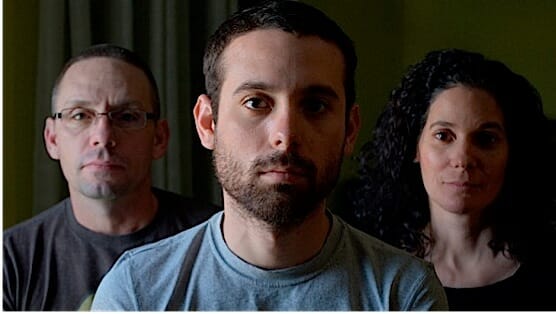The Kill Team

In addition to irrevocably changing the lives of tens of thousands of military families, the decisions to invade Afghanistan and then Iraq also undeniably altered the trajectory of American nonfiction filmmaking in the early 21st century. The first prolonged wars since the advent of social media were met with keen public interest, and with advances in digital cameras the barrier to entry was lower than ever for filmmakers.
Especially early on, many documentaries examined the conflict from soldiers’ points-of-view (The War Tapes, Gunner Palace, Occupation: Dreamland and of course Restrepo). The further the wars dragged on, however, the more complex and less experiential emerging nonfiction portraits generally became. Some looked at specific soldiers (The Tillman Story, Murph: The Protector), others the difficulty of reentry into civilian life (Where Soldiers Come From, Hell and Back Again). Some films examined bungled policy (No End in Sight, Standard Operating Procedure), or architects and media coverage of the same (The Unknown Known, The War You Don’t See), while others threw a spotlight on the military industrial complex more broadly (Why We Fight).
Now, however, we’re in an era less of psychological post-mortem than specialized, human-interest revisitation. Case in point: The Kill Team, winner of the Best Documentary Feature at last year’s Tribeca Film Festival, which focuses on one of the more incendiary stories of the Afghan War theater, in which members of an American unit were accused of deliberately targeting and killing innocent civilians, all for simply the thrill of the kill.
Directed by Daniel Krauss, Oscar-nominated for his short The Death of Kevin Carter, the film unfolds chiefly through the perspective of Adam Winfield and his parents, Christopher and Emma. When, in early 2010, 21-year-old Winfield heard about and witnessed members of his platoon murdering innocent civilians—planting so-called “drop weapons” on the corpses to make it appear as though they were terrorists—he reached out to his father by instant message, unnerved by these heinous war crimes. Left on his own and with threats against his life by the commanding officer, Staff Sergeant Calvin Gibbs (who was at the center of these actions), Winfield would find himself drawn into a moral abyss, eventually forced, in May of that year, to make a split-second decision. When the platoon’s actions were later discovered, Winfield was among five charged with premeditated murder in a military court. (Six more would be charged with participating in a cover-up.)
The Kill Team is certainly bracing in its forthrightness. With extraordinary access to the key individuals involved in the case—including the candid confessions of two other members of the so-called “Kill Team,” Jeremy Warlock and Andrew Holmes—Krauss’ briskly paced film takes a thought-provoking look at one of the types of stories of war that is so frequently forgotten once the first wave of stateside civilian outrage dissipates after a couple of news cycles.
-

-

-

-

-

-

-

-

-

-

-

-

-

-

-

-

-

-

-

-

-

-

-

-

-

-

-

-

-

-

-

-

-

-

-

-

-

-

-

-








































